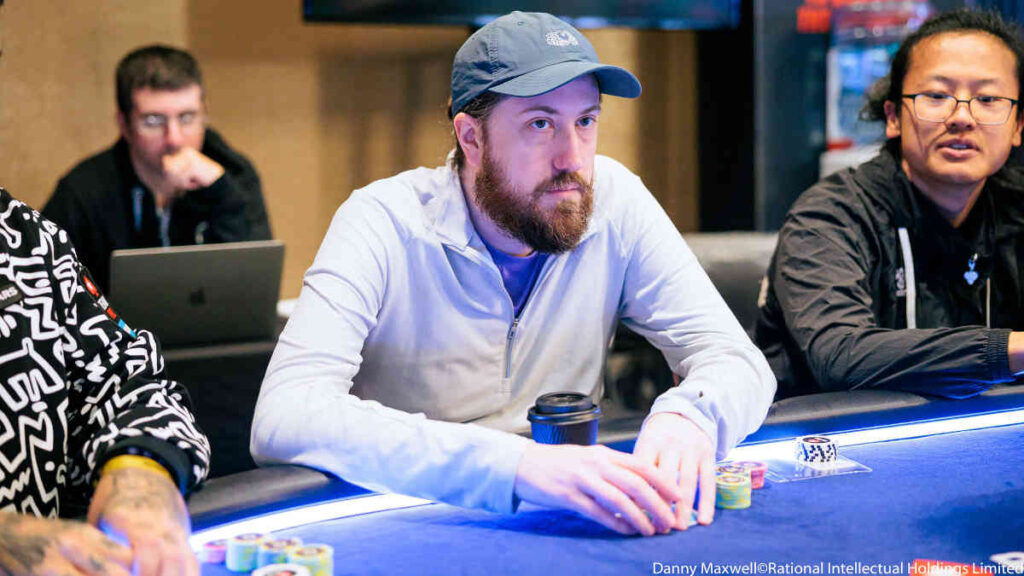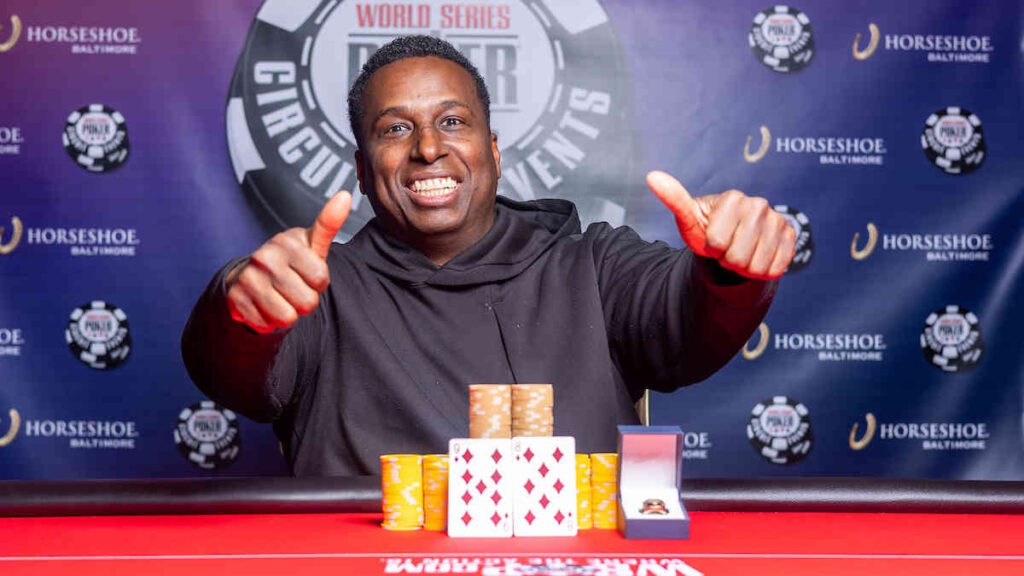A scorpion wants to cross a river but cannot swim, so it asks a frog to carry it across to the other side. The frog is understandably hesitant, fearful that the scorpion might sting it.
The scorpion promises not to, pointing out that killing the frog in the middle of the river would lead to its own demise. The frog acknowledges the logic of the scorpion’s argument and agrees to take the scorpion on his back.
Halfway across the river, the scorpion stings the frog, dooming them both. The dying frog asks the scorpion why it stung him, despite knowing the consequence. The scorpion replies: “I’m sorry, but I couldn’t help it. It’s in my nature.”
Edge-Finding
Poker players, on the whole, are sharper than the average gambler. They look for edges, find weaknesses, and pursue strategic advantages in a game that is, at its core, a battle of wits.
There are ethical edges and unethical ones. There is playing within the rules and playing within the spirit of the game. Many angle-shoots are technically allowed but massively frowned upon.
When we enter that sort of grey territory, it often falls on the players to self-police using the only weapon at their disposal – shaming the bad actor.
In an increasingly shameless world, where, in fact, being invulnerable to shame is a sort of superpower, players who like a clean game are finding it increasingly difficult to police that aspect of the game.
I freely admit that I, myself, do a bit of stalling around the bubble or ladder jumps. I have done an occasional gratuitous tank if it meant that my table would break before the blinds hit me.
I am very happy to last minute late register a tournament, aware of the ICM bump that my stack instantly receives.
My brain is wired to see those possibilities and take advantage of them, but I also care about the health of the game, so I am simultaneously someone who will encourage operators to stop or curb those opportunities.
As Unibet ambassadors, both Dara O’Kearney and I understood how max-late registering rebuy/add-on games that had a larger add-on fleeced the recreational player who was in from the start or, worse still, the satellite qualifier who couldn’t afford the add-on.
We both played in those games in the most +EV way possible, but we were also the main people who fought to have them removed from the schedule.
Controversy at the Irish Poker Open Super Highroller
In this way, poker players can be a bit like the scorpion. It is in their nature to take edges that are on offer, even if by taking those edges, they actually sabotage the longterm health of an ecosystem that they rely upon.
It therefore falls on the organiser to limit or restrict those opportunities and, where possible, prevent controversies that will occur between the players who exploit the grey areas and those who call out those who do so.
One such controversy took place last month, in the €10K Super Highroller at the Irish Poker Open when 2022 Irish Open champion Steve O’Dwyer called out the “parasitic behaviour” of WSOP bracelet winner Daniel Smilijkovic.
Predicting what might happen, O’Dwyer had forewarned players and staff of the late registration strategy of Smilijkovic who had grown a reputation for taking his seat ten or fifteen minutes after registration has closed.
When Smilijkovic showed up 16 minutes late to the Super Highroller, blaming his tardiness on an issue at the LuxonPay desk, O’Dwyer called foul and a heated exchange ensued.
Max Late Registration has certainly been a hot button topic in recent years and it is well known that players who avail of this option buy a stack which is worth more, and often a lot more depending on how many players have busted.
Showing up later again accentuates that advantage and is clearly beyond the Pale. Pokerati spoke with O’Dwyer to take a deeper dive into the issue.
Q&A with Steve O’Dwyer

How often have you seen Smilijkovic show up after late registration has closed? Have you alerted staff at other events in the past?
Steve O’Dwyer: I first noticed Daniel doing this at Triton Vietnam in 2023. Back then, Triton were a bit more lax in their procedures and it wasn’t unusual for certain players to show up last minute.
Tables would have to be broken to make room for them so sometimes they wouldn’t get seated for ten minutes. Other people definitely did this but he’s the guy who stood out in my mind. After that event, I told the organisers that they needed to tighten up their procedures and, to be fair, they did.
Then in 2024, in the €25K Highroller at EPT Paris, where late registration ended during a break, I remember that players were seated and then ten minutes later, he showed up.
Lots of players argued that late registration was over. A few of us were really angry and told him to get out of there! However, he said to staff that he had encountered some problems with Luxon and they seated him.
Then, earlier this year, at the Poker Dream festival held in Jeju, right before Triton, I remember that the first event was a $5K. Their system for registration was a bit of a mess.
It did close during a break but there were more late reggers than expected (15-20) and it annoyed a few of us already in the tournament how some players were hanging back rather than looking to be seated promptly.
I knew the staff there, so I impressed upon them how they had to stay on top of this issue, and to be fair, they did for the rest of the festival. Then, during Triton Jeju – and that was the biggest Triton ever – lots of players were max late registering, and I said, “Don’t start the clock until they get in”.
We ended up having to take an unscheduled break to prevent this from happening again, tournament director Luca Vivaldi, on my advice, issued the following message to players:
To ensure a smooth registration process and avoid delays for players still in the tournament, we kindly ask that if you plan to max late-reg, you visit the registration desk and collect your table/seat at the podium at least 10 minutes before late registration closes.
You will still be able to take your seat at the desired level, but this will help streamline the process significantly. Please note that otherwise registration will close based on the scheduled time, even if the clock is paused.
To be fair, the players responded positively to this request, and the issue went away.
So what happened at The Irish Open?
Steve O’Dwyer: After the break of the €5K Highroller, which was the end of late registration, tables had to be broke to make room for the new players. The people at the back of the queue, including Smilijkovic, got seated 12 minutes into the level.
After I busted, I spoke to Nick O’Hara and explained the situation. “Guys are in town who will try this angle,” I said, adding “the €10K is tomorrow and you need to be strict”.
The next day, Nick was unfortunately busy on other matters, so during the break, just as late registration was closing, with about 7 minutes left on the clock, I spoke with the floor-man working the event, explaining what had happened the night before.
I referred to my conversation with Nick, and I asked for confirmation that everyone would be seated before the clock was re-started. He confirmed that everyone would be seated first, and I was satisfied.
Then, several minutes into the next level, I saw the floor-man leaning over the balcony, looking towards Smilijkovic, who was by the LuxonPay desk below.
I jumped up and said to him, “Please don’t tell me he’s going to get seated. This is EXACTLY what I was warning about!”
He said that there was an issue with registration and that he was told he needed to seat more players. Despite my protests, Smilijkovic and two others were seated.
If a player shows up 15 minutes after late registration has closed and is allowed to take their seat – let’s say they missed 6 hands – how much EV does this angle capture?
Steve O’Dwyer: It’s probably worth less than 1% ROI, but if you get away with it, over and over for several years in high-stakes games, it adds up. You might only be scamming a few dollars from a few dozen people each time, but it’s still scamming!
Also, Smilijkovic has been told multiple times by players and staff that it’s not ok, but he still does it all the time.
I know you are concerned about how this sort of edge-finding trickles down into the game writ large. Can you expand on that?
Steve O’Dwyer: The highest stakes have the sharpest players, and the sharpest players are best at finding small unethical edges, and while people mostly don’t do it, some do, and there’s a trickle-down effect. It would be a disaster if you started to see this kind of behaviour taking place in €200 tournaments everywhere.
This is exactly why I have been reticent about talking about it before. There’s a risk when you inform people who might now think it’s a sharp thing to do and copy it. That’s why, up until now, I have preferred to speak quietly with the people in charge.
However, at a point, I do think you have to go public and make people aware. Plus, he called me a liar and said that it hadn’t happened before, and that angered me because it had happened before.
I have long argued for late registration to end when players are buying 25 big blinds or more. I know that you’re fine with it being shallower than that, so long as the cut off is strict. What number of big blinds do you favour and why?
Steve O’Dwyer: I don’t have a favourite cut off point. For higher-stakes stuff, 20-25 seems good. I definitely don’t like it going shallower than that, even though shallow poker is way more complicated than people realise.
For main events, especially ones into which lots of players have satellited, I think 30-40 is ideal. The reason is that higher stakes players like me wouldn’t bother playing if they have to play for longer with a 40 big blind stack, whereas buying 20bbs, I might try to spin it up. Discouraging me is smart.
You called on Matt Savage to make this a priority, hinting that maybe a TDA rule could be made more clear and certainly be properly enforced. Do you think he or other prominent TDs will take up the fight?
Steve O’Dwyer: Yeah, I’ve known Matt for a very long time. He has always said he values my feedback, and I think this is a good topic for the summer TDA meetings. Hopefully, it will at least make more TDs cognisant of what this angle is and how they need to police it.
Both PokerStars and Triton are already very strict about it, and after what happened, the Irish Open will be too.
After I busted the €10K in Dublin, I spoke with senior floor staff there who were very apologetic, acknowledged that it shouldn’t have happened, and promised that they would be on the lookout for it in the future. I really hope that this carries over to the WSOP, where a lot of the same staff will be in charge.
Does any responsibility fall on the LuxonPay desk since a delay there seems to be how this angle is found?
Steve O’Dwyer: No, not really. It’s not Luxon’s fault. I’ve never had a Luxon problem. What does it even mean to have a Luxon problem? You just press a button. It would be pretty easy to fake a Luxon problem by putting in the wrong password to intentionally slow things down.
In any case, the Pokerstars app was used at the Irish Open and that displays all the clocks and information needed so it’s easy to get to where you have to be in plenty of time.
You could even register hours before and just collect your ticket a few minutes before. There’s really no room for this justification. It’s just an excuse!
Say No to the Scorpion
As soon as the egregious benefits of very late ‘late registration’ in poker tournaments became common knowledge, steps should have been taken to reduce the period during which it was permissible.
Incredibly, though, down the years, it has seemed to go the other way with most organisers extending it further. In my opinion, it has actually reached the point where there is implicit collusion taking place between organisers and sharp players.
Later late registration deep into the tournament means more rake (with a lower impact on dealer costs) for the house and more profitable spots for the player.
While I don’t think that you can blame a player for doing what is in their short-term best interest, you can certainly blame an organiser for creating a structure that can be so blatantly exploited.
Limiting that advantage is paramount to maintaining a playing field that is only somewhat uneven, and Steve’s suggestion of 20-25 big blinds seems correct for the highrollers that he plays.
It is also vital that tournament staff are strict when enforcing the max late registration policy that does exist. The frog just has to say no to the scorpion.


